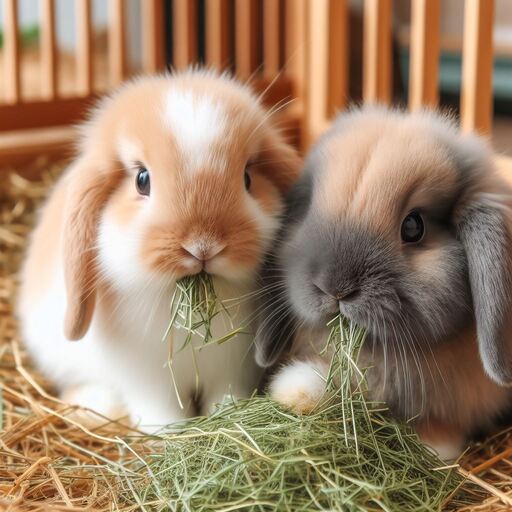
Ensuring the health and wellness of your pet rabbit is essential for their happiness and longevity. Just like any other animal companion, rabbits require proper care, attention, and regular veterinary check-ups to thrive. In this section, we'll delve into the fundamentals of rabbit health, from preventing common ailments to maintaining their overall well-being.
First and foremost, a balanced diet is crucial for keeping your rabbit healthy. Rabbits are herbivores with sensitive digestive systems, so their diet should primarily consist of high-quality hay, fresh vegetables, and a small portion of pellets formulated specifically for rabbits. Avoid feeding them foods high in sugar or starch, as these can lead to digestive issues and obesity.
In addition to diet, providing adequate housing and living conditions is essential for your rabbit's health. A spacious, well-ventilated enclosure with plenty of room to hop and stretch is ideal. Make sure to provide a clean, comfortable bedding material, such as hay or paper-based bedding, and regularly clean their living space to prevent the buildup of waste and bacteria.
Regular exercise is also key to keeping your rabbit fit and healthy. Rabbits are natural athletes and require plenty of opportunities to run, jump, and explore. Consider providing a safe, rabbit-proofed space where they can exercise freely, or take them outdoors on a harness and leash under supervision.
Lastly, don't overlook the importance of mental stimulation and socialization for your rabbit's well-being. Interactive toys, tunnels, and puzzle feeders can help keep them mentally engaged and prevent boredom. And because rabbits are social animals, spending quality time interacting with them each day is essential for their happiness and emotional health.
By prioritizing proper nutrition, housing, exercise, and mental stimulation, you can help your pet rabbit lead a healthy, fulfilling life. In the following sections, we'll explore common health issues in rabbits, how to recognize signs of illness, and when to seek veterinary care to ensure your rabbit stays happy and healthy for years to come.
Routine Veterinary Care
Routine Veterinary Care can include checkups, vaccinations and de-sexing.
At a checkup, your vet can check for dental or weight-related issues and can also help with nail clipping if you are not yet familiar with clipping your bunnies toenails.
It is important to have your rabbit vaccinated against Calcivirus every 6-12 months. This is a highly contagious disease that was introduced into Australia to manage the wild rabbit population. If you are located in another part of the world, refer to local information regarding available vaccines. You may also be able to vaccinate against Mixamatosis, a mosquito-borne virus. As this vaccine is not available in Australia, care must be taken to keep your bunny away from mosquitoes.
Pet rabbits should be de-sexed at around 6 months of age. This is important to prevent behavioural issues which can make it difficult to care for your bunny.

